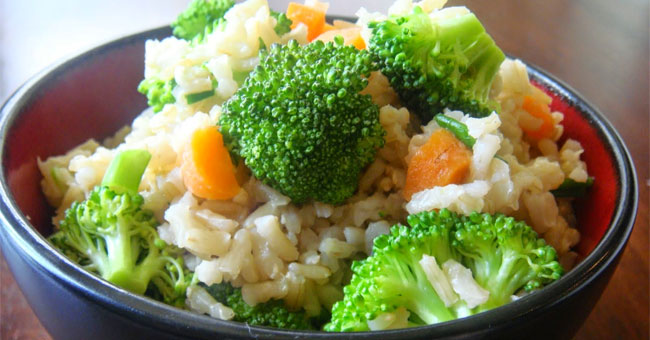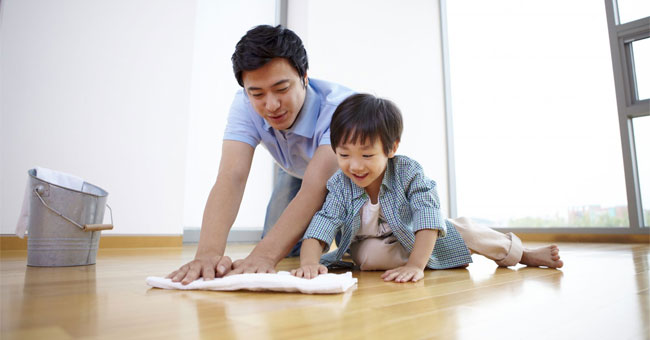Preventing disease when the sky is humid in spring
The weather is in the days when the weather is humid, the humidity in the air is high and the persistent bouts of chewing. Not only makes it more annoying but more dangerous when respiratory and skin diseases like chickenpox are followed. In addition to making the house more open by buying dehumidifiers, you should also have the knowledge to prevent the necessary disease to protect the health of each family member, especially the elderly and young children. have poor resistance.
1. Old people and young children are easily sick
The weather in humid season is usually not fixed, early morning often with drizzle, it will stop rain in the afternoon, but it can be cold in the evening. Every day, there are 3 types of weather that make it easy for people to get sick, especially children and the elderly.
People who are allergic to this type of weather are also very sick. Diseases such as runny nose, sore throat, muscle aches are usually caused by Adeno virus . If not detected for early treatment, it will lead to more persistent, more severe conditions that cause respiratory failure when the virus enters the lungs. With low humidity, viruses that cause respiratory , chickenpox , measles , typhus , rubella develop faster and can cause illness in both adults and children.

Those with a history of low disease such as rheumatism , low heart , etc. will also often have pain when the weather is moist.
The types of molds, fungi that are born and cling to clothing, books, blankets and curtains are also the causes of allergies , respiratory infections , asthma attacks .
2. How to prevent spring disease?
Enhance resistance
Children and the elderly are at risk because of poor resistance. Begin to change right from the menu in daily, scientific meals that are full of nutrients. Should provide plenty of green vegetables, fresh fruit instead of increasing fat protein.
Adding water every day is also a way to increase resistance, avoiding the risk of dehydration. Daily activities should get enough sleep, avoid staying up late causing fatigue, creating opportunities for diseases to develop. Maintain daily exercise regime.

Keep warm enough for the body
For children, need to keep the abdomen warm to limit gastrointestinal diseases. Do not leave it too cold or too hot even for the elderly. Limit to children and elderly people outdoors when the weather is drizzling, or suddenly cold.
If rain water is applied, dry clothes should be replaced immediately if possible or dry and heat people immediately. Should be supplemented with hot ginger water to prevent colds.
Keep your home clean and clean
The moist air will follow the window and moisten your home. The windows should be closed to limit the air entering the house. Regularly clean houses with absorbent fabrics. Blanket blankets should also change the precaution of mold and moisture, causing many diseases or viruses. Using a dehumidifier to reduce the amount of moisture in the home is also a feasible solution when it is dark.
Clean and vacuum dust with moldy objects to avoid inhaling dust and causing infection.

Dry room, clothes
Mold, bacteria, . can cling to clothes and cause illness in people. Dehumidifiers can be used to remove moldy air in the room. Clothes worn should be dried or used dry, preventing children wearing moist clothing from being susceptible to cold, thereby suffering from a variety of respiratory diseases. Note, limit the use of floor mats when the floor "sweats"
Ensure body hygiene
Always keep yourself healthy. Wash hands before and after eating to prevent bacteria from spreading. Women are prone to gynecological infections when it is in the sky. It is necessary to use a cleaning solution to clean it, only 2 times a day, to avoid using too much to lose the natural balance of the enclosed area.
Regularly monitor the health of everyone in the family
Children need to be fully vaccinated when it comes to the injection schedule. Every day, parents need to monitor their health to detect abnormal signs such as cough, high fever, fuss, lazy eating, . Older people also need to monitor their health. Symptoms such as tired limbs, feeling of loss of appetite, constant insomnia, . should be taken to medical facilities for timely treatment.
3. Pay attention when taking care of children on a wet day
Keep your baby warm
Note to avoid chills, causing diarrhea or abdominal pain that affects your ability to absorb food.
You can wrap a thin towel around your abdomen and wear warm clothes out for your child. Take care not to tighten the hand tightly, with proper wrap. When sleeping, apply a thin blanket or wrap a towel around your abdomen to prevent your baby from pedaling.
The weather often changes erratically, so give the child a cotton shirt inside, a jacket on the outside. Thus, children will not get cold in the morning, hot noon can take off the outer jacket to avoid sweating into the inside causing cold.

Children at night often sweat. Should put a thin bucket on the back of the child, if the wet back is visible, dry it immediately and replace it with a dry towel so that it does not get cold. Should prepare a few warm water towel to wipe the sweat for children. Thoroughly wipe the head, back, nape, soles of the feet, liver and hands, places where sweating often occurs.
Limit your child to sudden hot and cold contact, limiting to drizzling rain. Children need to wrap their legs and body with a thin blanket when going out. Choose the type of hat, waterproof clothing.
When putting children out, wear a different shirt and pants to keep it moist. If your child is very active, take off his or her clothes so he or she can move more comfortably, avoiding sweating inside. When you return home, also let your child adjust to the temperature change for a few minutes, then remove the outer clothes for the child.
Give children enough water
For children who are in a room with a fan, the air conditioner is often dehydrated. If a child with rainwater needs to change clothes immediately, give him hot milk, or hot ginger sugar.
Keep the baby's feet warm
Foot and liver is often a place that is susceptible to exposure in cold environments, affecting respiratory, circulatory and health deterioration. Let children wear socks, warm shoes. Before bed, wash and soak your feet in warm water, dry to prevent colds.
Avoid having children get wet from the feet because of cold rain, dry them immediately to avoid colds. Do not let children rain, do not walk barefoot, take too long to bathe or wear wet clothes when it is hot.
Children who have just slept in bed should not let children go out immediately, wearing enough clothes to adapt to the weather outside. If someone has a runny nose, sneezing or getting sick, it is necessary to limit exposure.
Refer to the following articles:
- When life is too difficult, remember these 10 sentences
- 40 things you should do before turning 50
- 6 essential elements to have a healthy body
Wish you and your family healthy!
You should read it
- ★ How to prevent diseases for children when the weather is seasonal
- ★ Why are humans susceptible to animal diseases?
- ★ Successfully manufactured new medicine helps treat rare immune diseases
- ★ The 5 most rare diseases in the world turn ordinary people into 'superheroes'
- ★ 7 things to know about dental care